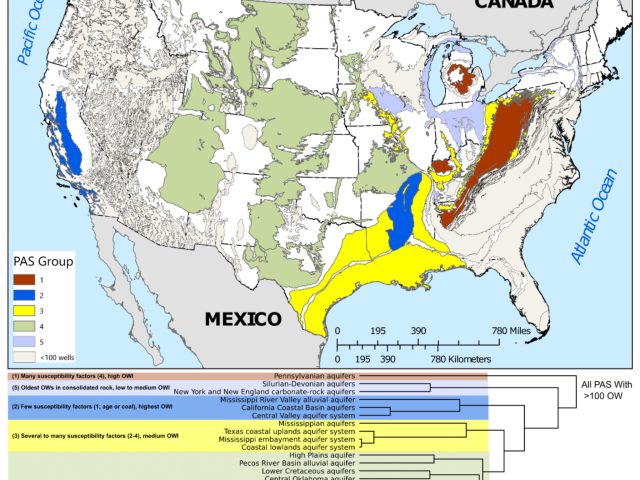Orphan Wells Pose a Contamination Risk to Aquifers

A recent USGS study published in Science of the Total Environment has mapped groundwater vulnerability to contamination from orphan wells across the U.S., highlighting the Pennsylvanian aquifer system as one of the most at-risk. This aquifer spans several Appalachian states, including parts of Michigan, and intersects with regions where oil and gas drilling began over a century ago.
Orphan wells are oil or gas wells that are no longer in use and have no legally responsible party for their maintenance or plugging. Many of these wells were poorly documented or abandoned before modern regulations and were often sealed with materials like wood or corrodible metal, if sealed at all.
The Pennsylvanian aquifers exhibit what the study terms the “maximum confluence” of risk factors: a high density of aging orphan wells, nearby coal seams, and close proximity to residential water wells. These characteristics make them especially vulnerable to contamination from hydrocarbons and brine migrating through unplugged or degraded well pathways.
In Pennsylvania specifically, the situation is likened to “Swiss cheese” due to the sheer number of historic wells compromising subsurface integrity. Documented incidents of groundwater contamination in the region, including recent emergencies where family water supplies were tainted, underscore the urgency of remediation. The findings are particularly relevant for states like Michigan, where the same geological formations are present and potentially host similar legacy infrastructure challenges.
Read the full story on Inside Climate News.
Photo Credit: Science of the Total Environment
